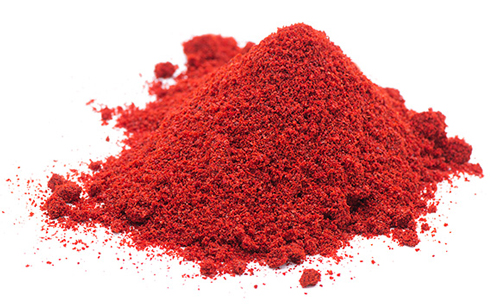Fight the signs of aging by taking astaxanthin
Everyone wants youthful, healthy-looking skin. It’s too bad that the skin naturally ages: For some, the signs come as soon as they hit their 30s, when fine lines, wrinkles, and sunspots start to appear. While people spend thousands of dollars on conventional skin treatments that can do more harm than good, there are safer and more effective natural treatments available. These often include natural compounds that have powerful antioxidant effects, such as astaxanthin.

In a study published in the journal Nutrition Research, researchers from the U.K. found that supplementing with astaxanthin can help in keeping skin aging at bay. Earlier studies have shown that taking antioxidants can reduce oxidative stress which accelerates skin aging; it just so happens that astaxanthin is one of the most powerful antioxidants in the world: It’s up to 6,000 times more powerful than vitamin C, 3,000 times more potent than resveratrol and quercetin, and 500 times stronger than vitamin E.
For the current study, the researchers investigated the effects of regular astaxanthin intake on oxidative stress in middle-aged men and women. They hypothesized that taking astaxanthin regularly could positively affect residual skin surface component (RSSC) morphology, which allows detecting age-related changes in corneocyte desquamation, microbial presence, and lipid droplet size.
To test this hypothesis, the researchers recruited 31 participants over the age of 40 and gave them four milligrams (mg) per day of astaxanthin for four weeks. They also took RSSC samples from the surface of the facial skin of participants at the start and end of the study. In addition, they took blood samples at the start, the 15th day, and at the end of the study to measure levels of malondialdehyde — a marker for oxidative stress.
The results of the study showed that malondialdehyde levels consistently decreased during astaxanthin consumption. Based on the analysis of RSSC samples, intake of astaxanthin also significantly reduced levels of corneocyte desquamation and microbial presence. All changes in RSSC are associated with the characteristics of younger skin. These changes were more strongly pronounced in obese participants. From these findings, the researchers concluded that taking astaxanthin greatly reduces oxidative stress, which leads to facial skin rejuvenation. This is especially seen in obese individuals.
Ways astaxanthin keeps your skin healthy
Astaxanthin is the reddish pigment belonging to the xanthophyll group of carotenoids. The substance occurs naturally in some algae and is what causes the reddish/pink color in salmon, lobster, trout and other seafood.
Astaxanthin is often referred to as ‘the king of carotenoids’ because of its reputation as one of the most powerful antioxidants found in nature. The substance is of particular significance because it never converts to become a pro-oxidant. This means that it can never cause harmful oxidation in the body, making it perfect for health related benefits and performance.
Many studies have proven that astaxanthin provides many skin benefits, such as:
• Astaxanthin makes your skin look younger. Studies have revealed that taking oral astaxanthin supplements for eight weeks significantly enhanced the appearance and quality of the skin, improving wrinkles, elasticity, moisture content, and skin texture, of healthy participants.
• Astaxanthin makes your skin healthier. Astaxanthin can also help boost skin health. In one study, researchers from Ireland have found that astaxanthin demonstrated skin cell protection from DNA damage — which is considered a root cause of skin cancer.
• Astaxanthin helps boost collagen production. Astaxanthin helps to promote the production of collagen in the skin. Astaxanthin does this by fighting oxidative stress that damages collagen. Collagen is responsible for keeping the skin healthy from the inside-out; it maintains skin tone, elasticity, and firmness. When collagen is weakened, the skin starts to become saggy, wrinkly, and thin.
• Astaxanthin protects the skin from sun damage. Studies have shown that pre-treatment with astaxanthin can protect the skin against ultraviolet light exposure by minimizing sun damage. In addition, the skin rejuvenates quickly from sun damage after topical application of astaxanthin. It can help protect the skin from developing sunburn or to relieve a sunburn after its formation due to its powerful anti-inflammatory properties.
yogaesoteric
July 10, 2019
Also available in:
 Français
Français
